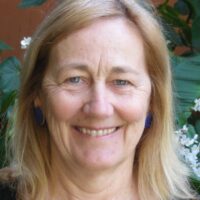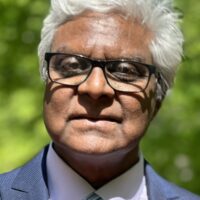APA will open the ballots for Divison Elections in April 15, 2024. At that time, Divison members will receive an email from APA to vote in the election. In the meanwhile, Division 52 is proud to announce its candidates for elected positions in the Divsion and to post their candidate statements.
Open positions for 2024 (to assume office in January, 2025) include:
- President Elect – Candidates – Judith Gibbons, PhD, Michele Ribeiro, PhD
- VP for Engagement – Candidates – Breeda McGrath, PhD, Carlos Zalaquett, PhD
- Council Represesntative – Candidates – Merry Bullock, PhD, Theophilus Lazarus, PhD
CANDIDATES FOR PRESIDENT-ELECT
Duties: Serves one year as President-Elect, one year as President, and one year as immediate Past President. The duties of the President-Elect are to work collaboratively with the “Presidential Trio” (past-current-elect) to provide continuity in the implementation of the Division 52 strategic plan. The President-Elect also serves as Co-Chair with the Past President of the Strategic Planning Committee and participates actively in Division committees on awards and nominations as well as the Board and the Presidential Advisory Committee.

Judith Gibbons, PhD
St. Louis University
St. Louis, Missouri, USA / Antigua, Guatemala
My primary professional goal is to foster and promote psychology that is global and international. Division 52 has been a leader in this field and has the unrealized potential to create a truly global psychology. We are poised to help psychology broaden knowledge, enhance communication, and address global problems such as climate change, migration, gender and ethnic inequities, poverty, and human trafficking.
I hope to work with the three vice presidents and the rest of the executive committee, as well as members, students, and ECPs, to extend the Division’s reach and impact through collaboration with other divisions of APA, the Committee for Global Psychology, APA’s office of International Affairs, and other international psychology organizations such as the Interamerican Society of Psychology (SIP) and the International Association of Cross-Cultural Psychology (IACCP).
Division 52 already boasts a flagship journal, International Perspectives in Psychology, as well as a newsletter, the International Psychology Bulletin, and we host an outstanding webinar series, but we have the opportunity to pursue initiatives such as additional scholarly outputs including journal special issues and scholarly books.
We can also make increased efforts to extend our reach beyond North America by sponsoring symposia at international meetings and increasing voices from outside North America, especially from the Global South.
I would be honored to collaborate with other officers and members of Division 52 in furthering these objectives as well as other initiatives to promote a global psychology.

Michele Ribeiro, PhD
University of Oregon
Corvallis, Oregon, USA
I am honored and excited to be running again for the President-Elect position for Division 52. My presidential theme for 52’s ongoing health and vitality as a division is Enhancing Global Inclusivity. As a division we have been collaborating with more colleagues to grow in our understanding of how to represent the needs of a diverse world while still being grounded in science and the common need for positive well-being. Having served the division as secretary for almost 4 ½ years I was able to get a pulse for the needs of our membership including the power and talent of our student and early career constituencies. My goal would be to build upon our predecessors in leadership to continue honoring indigenous and cultural knowledge and practices coupled with contemporary best practices on a global scale to meet the challenges of today. These challenges include thoughtful responses to armed conflict, hate that divides and harms all, and partnering with organizations that stand for justice, peace, liberation and human rights for all, particularly those who are most marginalized within our world.
I currently serve on the APA Council of Representatives and am involved in the Caucus for Promoting Global and Global Human Rights Perspectives, the Racial Ethnic Diversity Task Force and the Caucus for Culture, Ethnicity and Justice. Through these mechanisms and my passion for working with groups and cultures, I have the skills needed to collaboratively lead our division in serving our membership and the next generation of globally minded psychologists.
CANDIDATES FOR VICE-PRESIDENT FOR ENGAGEMENT
Duties: The Vice President of Engagement serves a term of 3 years. The duties of the Vice President for Engagement are to facilitate and support Division activities and standing committees focused on membership recruitment and retention, engagement, outreach, liaison activities, and student and ECP activities. The VP of engagement will also participate on the Presidential Advisory Committee, representing the actions and concerns within the scope of their respective areas of purview.

Breeda McGrath, PdD
The Chicago School
Bethesda, MD, USA
I am honored to be nominated to continue serving as VP of Engagement for Division 52. My commitment to global collaboration with colleagues on spreading the science and practice of psychology is a constant throughout my career and daily life. I hope to continue expanding engagement among professionals both within the Division and outside so that we can increase our impact. The sociopolitical challenges across the globe call for psychologists to support communities on all sides to tackle division and cultural conflict. We have a responsibility to engage as solution finders and change agents to help increase intercultural understanding and collaboration.

Dear Colleagues, I would be honored if you provided me with the opportunity to serve as VP for Engagement of APA’s Division 52 International Psychology. I value our Division’s mission and goals. The world is in need of a psychology aware of global issues, open to international collaborations, and capable of offering solutions to worldwide challenges. Our division undoubtedly strives to “represent psychologists who are interested in promoting greater global awareness …. psychologists who foster international connections….,” engage in multicultural research or practice, apply psychological principles to the development of public policy, or are otherwise interested in global events.”
We use many platforms and programs to facilitate communication among professionals from multiple nationalities, like the International Psychology Bulletin (IPB); the journal, International Perspectives in Psychology; the website, listservs, and collaborations with international associations and APA’s Office of International Affairs. My goal as VP of Engagement is to advance the impressive work our division has accomplished by expanding international collaborations, increasing colleagues and students’ multicultural participations, and supporting initiatives such as international ethics, immigration, human rights, teaching, research, trauma, climate, and disaster.
As a point person for committees such as Membership, Fellows, or Students, I will work intentionally to bring our Division to new heights in the global context. I believe the experience gained working in many iberoamerican and international groups will serve me well in the pursuit of the above mentioned goals. i will appreciate your support! To be continued…
CANDIDATES FOR COUNCIL REPRESENTATIVE
Duties: The Council Representative serves as the Division’s representative to the APA Council of Representatives, which is the governing authority of APA.
The Representative attends and engages in APA Council of Representatives meetings, regularly consults with Division leaders, and reports to the Division members about council actions and deliberations.

I am completing my first term as Division 52 Council Representative. I would be honored to continue being your representative for a second term. Being on council is an opportunity to bring 52’s voice and vision and global perspective to the broader APA arena.
Accomplishments to date:
- Formation and co-chair of a new council caucus “Promoting Global and Global Human Rights Perspectives” (with collaboration from former D52 secretary Michele Ribeiro and past president Tony Puente).
- A successful caucus motion to gain a seat on the Agenda Planning Group for the Committee on Global Psychology chair– this means there is an international voice in setting the council agenda AND the chair is invited to attend council meetings.
- A second caucus initiative on APA’s responses to global armed conflict is in the works
In each council meeting there are many opportunities to direct attention to global perspectives. You can read about council meetings and activities in my regular reports in the Division 52 newsletter.
Personally, I have been deeply involved in international collaboration, living and working in four different countries in academic, research, and association contexts. My goals are to foster culturally humble global engagement, to be a learning partner, to boost the effectiveness of psychological science and application in addressing global challenges, and to contribute to the development of psychology worldwide.
As your representative, I will work hard for you and speak up to voice our shared commitment to culturally informed, inclusive, human-rights based policies and actions.

Dear APA Div 52 colleagues
Thank you for the nomination for Div 52 President which I humbly accept.
I am fully supportive of, and participant in the mission statement of Div 52 as it extends its arms of welcome colleagues from global societies. My experiences in growing up in South Africa, a country that was marked by systemic racism, experiencing first-hand the punitive laws based on race and class, led me to study Psychology. My experiences in developing programs incorporating the needs of a multicultural society with 12 official languages and multiple cultural group, whilst also studying at a doctoral and post-doctoral level in USA and UK has founded my broad base of culturally-sensitive knowledge that will shape my leadership of Div 52. Facing the threats of apartheid police whilst teaching at university in South Africa prompted the development of resilience, common in communities qith adverse circumstances. The vision of a nonracial, non-sexist and democratic, multi-cultural society in South Africa has been central to my teaching, researching and supervision of students in Psychology over 40 years, some of whom are now working in USA, Canada, UK, Kenya, Australia, New Zealand, Ireland, India and Malaysia. I have become aware of the disparities in knowledge generation across global societies. Decolonizing knowledge is a buzzword in the Global South with increasing recognition of the limitations of existing knowledge bases. As Div 52 members, Dr Antonio E Puente and I presented a paper in South Africa in February 2019, entitled, ‘Decolonization of Psychology in South Africa: The case for Neuropsychology’, proposing culture-sensitive assessment and interventions for seizure disorders. The recommendations emanating from that paper have been acknowledged not only by medical practitioners, but has attracted the attention of pharmaceutical companies who were baffled by medication non-compliance in some seizure patients residing in the Global South. The role and power of indigenous knowledge when treating psychiatric and psychological patients is now part of the management in many communities. History suggests that exclusion of large global populations, consciously or subconsciously, from psychology has come full circle as ‘Global South’ countries rally with their own indigenous models of research and interventions. Indeed, more than 80% of the world’s population live outside the traditional sample description of psychology studies, i.e., White, middle class, educated and democratic, and of course mostly male. As the world polarizes along socio-political lines, it is incumbent on psychologists to heed their professional calling–to search for an inclusive, non-judgmental, knowledge-seeking and cultural and language sensitive approach in research and interventions. Whilst traditional Western approaches are thought to be individualistic, the benefits of Non-western community living, prioritizing social relationships across generations which forms the foundation of knowledge should be further explored with obvious broad benefit to societal structures, including financial upliftment, as reflected in the proverb, “it takes a village to raise a child”. My research shows that the delicate balance between incorporating traditions from community elders and exploring new vistas of personal and community development in its broadest sense is the foundation for strong families and communities, and ultimately societies. I believe this is an aspiration of Div 52, resonating with my own views which I hope to continue nurturing and amplifying through my network of colleagues, politicians and communities in many countries of the Global South.
